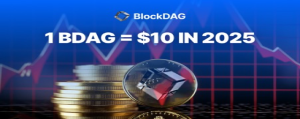Has binary options had its day? – The pressure is mounting
Mainstream media pressure mounts against binary options. We take a look at why this has happened and whether it has potentially reached its limits.

When a practice appears dubious to those who are knowledgeable in a specific subject only, it can be allowed to proliferate with rarely any repercussions.
However, when said practice begins to appear dubious to the general public and becomes the subject of the mainstream media, the attention of the powers that be is often attracted.
Just five years ago, the retail binary options business was a fledgling industry, however it has become a vast and international enterprise, with just shy of 300 currently active white label brands which are spread across 6 platforms which are specially designed for white label partners to quickly establish their business and begin to onboard retail customers.
Between 2011 and now, many binary options brands have come and gone. The turnover and lifespan of brands being often quite short, their business model being to establish a call center, take a full end to end solution from one of the 6 dedicated binary options platform providers.
They then call lead lists which in many cases have been purchased from affiliated entities in the online gambling sector in order to extract first time deposits which are often blown within the same day, before passing the lead to a retention desk whose duty it is to extract a further deposit which is then often blown quickly.
After this process, the customer often then does not deposit more – after all, most binary options brands have as much in common with the financial markets industry as quails eggs do with dilithium crystals in that most of the ethos behind the binary options business emulates that of an online casino and the customer lists are often compatible with gaming rather than financial markets.
Local regulatory authorities in Cyprus, Canada, Israel, United States, Britain, Australia and New Zealand have over the past few years issued warnings against unlicensed binary options companies soliciting in their region. In some cases against firms that are regulated in one jurisdiction but do not have a license to operate in another, which is an attempt to raise awareness among retail customers of the potential perils of ‘investing’ in binary options as best possible with no actual legal jurisdiction over preventing it.
So far, only two countries have outlawed retail OTC binary options completely, those being the United States and Israel. In the United States, binary options must be executed through one of two dedicated central exchanges, NADEX and Cantor Exchange.
These are absolutely rooted in the center of institutional financial technology and exchange listed derivatives – Chicago – and are completely committed to providing a correct financial markets trading system, with currency contracts executable on exchange, as well as CME Group’s E-mini S&P500 index, bitcoin futures and China 50 which is based on the SGX (Singapore Exchange), FTSE, Xinhua and China A50 indexes.
Whilst there is no doubt that this is a true financial markets environment, volume is very small. NADEX and Cantor Exchange publish the expiration and settlement values of all contracts as publicly available information.
Considering the operating costs of exchanges, regulatory reporting requirements and membership fees for market makers, the volume is small, an example of which can be viewed here.
This is a great shame because there is massive merit in doing things properly, via proper venues in an organized and fully trader-orientated fashion.
In Israel, things are somewhat different. It is now illegal to offer any form of binary options contract to Israeli customers, however the vast majority of the platform providers and brands that sell OTC binary options all over the world originate from Israel, they are just not licensed in Israel, do not conduct business in Israel, nor do they register their companies in Israel.
Far from having careers which began with an internship at Merrill Lynch or Goldman Sachs after a private school education, Ivy League economics or technology degree and a career as a senior executive at an exchange technology firm or in institutional brokerages, it seems the majority of firms in the binary options industry were founded by and are operated by former online gambling sales people, affiliate marketers, adult entertainment site owners, and lead buyers.
Very few binary options brand owners, employees of the brands nor executives within the platform providers know nor care how liquidity aggregation, connectivity, market execution or trade clearing actually works. It is not part of their business model. Instead, they know about lead conversion, deposits, affiliate marketing and lead list acquisition and recycling.
When mixing financial services and the responsibility toward client funds and the investment nature of the business which regulators deem a major point with regard to customer well-being with gambling, affiliate marketing and lead buying, a number of question marks have now come to light and are in the public domain.
Mainstream newspapers are now beginning to cover regulatory warnings in the way that local regulators have been issuing them to those in the know, therefore taking these warnings to the public at large alongside generic tabloid news reports are now part of the raising of awareness.
On this list is SpotOption brand GOptions, which releases videos passing off its platform as its own innovation, and makes several claims toward very high profitability for traders, its content being unorthodox to say the least.
Astonishing.
The ‘boiler room’ style high pressure sales environment is one of the largest moot points among dissenters. A trip to a binary options brand will often demonstrate this as there are batteries of sales staff, often people from all over the world who are multilingual, hunkering down over their phones persuading customers from a lead list to deposit and then when a deposit is made, a red light flashes and applause is abound.
Many brands are licensed by CySec, which last week issued a circular which was widely misinterpreted.
“When designing or reviewing the remuneration policies and practices, the CIFs must consider the conduct of business and conflicts of interest risks that may arise and take reasonable measures to avoid or manage them appropriately and efficiently” stated the circular.
The remuneration policies and practices must, inter alia, be designed in such a way so as not to create incentives that may lead persons to favour their own interests, or the CIF’s interests, to the potential detriment of clients.”
“Furthermore, the CIFs must establish, implement and maintain adequate control mechanisms for compliance with remuneration policies and practices being implemented and maintained by the CIFs” it concluded.
FinanceFeeds spoke to CySec on this last week, a s senior official within the regulatory authority explained “CySEC identifies in its Circular that the remuneration based on volume is a type of conflict of interest whose existence may damage the interests of clients and therefore, Cyprus Investment Firms must take reasonable steps to avoid or manage this type of conflict appropriately.”
This clearly means that, although the practice is not being outlawed, CySec is taking a look at how regulated firms remunerate their staff – and in binary options, the vast majority of staff are remunerated on net deposit amounts – ie, a sales person is paid commission based on how much customer deposit can be retained by the company and cannot be withdrawn.
Dissecting that information carefully raises two important questions:
- If binary options contracts were being served in the live market, the net deposit would not be relevant because the principal capital would be executed in a live market, therefore a volume commission would be charged by a brokerage and it would capitalize its operations on the commissions.
- Where is the retained deposit amount of a loss making trade? Clearly, if P&L remuneration is the norm, it is a case of customer vs house, and no execution in a live market. In short, the binary brand or its platform provider is the market maker and the house, just as in an online casino.
The irony is that, despite the massive media attention these days, and the regulatory warnings, FinanceFeeds has become aware of an increase in gregariousness by some brands, which are now taking very large deposits, in some cases up to $500,000 and creating an environment in which it is either not possible to win, or withdraw due to complex terms and conditions which lock client capital in.
Indeed, it may be that the idea behind the retail OTC binary options sector was not to emulate the sophistication of the real electronically traded markets, but to make hay while the sun shines. It looks, however, that the clouds of officialdom are rapidly approaching.









